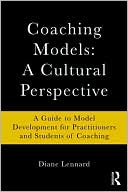Category Books
- Fiction Books & Literature
- Graphic Novels
- Horror
- Mystery & Crime
- Poetry
- Romance Books
- Science Fiction & Fantasy
- Thrillers
- Westerns
- Ages 0-2
- Ages 3-5
- Ages 6-8
- Ages 9-12
- Teens
- Children's Books
- African Americans
- Antiques & Collectibles
- Art, Architecture & Photography
- Bibles & Bible Studies
- Biography
- Business Books
- Christianity
- Computer Books & Technology Books
- Cookbooks, Food & Wine
- Crafts & Hobbies Books
- Education & Teaching
- Engineering
- Entertainment
- Foreign Languages
- Game Books
- Gay & Lesbian
- Health Books, Diet & Fitness Books
- History
- Home & Garden
- Humor Books
- Judaism & Judaica
- Law
- Medical Books
- New Age & Spirituality
- Nonfiction
- Parenting & Family
- Pets
- Philosophy
- Political Books & Current Events Books
- Psychology & Psychotherapy
- Reference
- Religion Books
- Science & Nature
- Self Improvement
- Sex & Relationships
- Social Sciences
- Sports & Adventure
- Study Guides & Test Prep
- Travel
- True Crime
- Weddings
- Women's Studies
Coaching Models: A Cultural Perspective »

Authors: Diane Lennard
ISBN-13: 9780415802147, ISBN-10: 0415802148
Format: Paperback
Publisher: Taylor & Francis, Inc.
Date Published: April 2010
Edition: (Non-applicable)
Author Biography: Diane Lennard
Diane Lennard, Ph.D., is a coach and Clinical Associate Professor of Management Communication at New York University Stern School of Business. In her course, Foundations of Business Coaching, full-time and part-time MBAs, Executive MBAs, and other graduate students develop, apply, and present their own coaching models. In addition to coaching students, faculty, and administrators at NYU, she coaches business executives, consultants, and other professionals.
Book Synopsis
"In addition to providing an extensive analysis of strategies for changing performance and the factors that can impact coaching effectiveness, this book offers what may be a unique value: instead of promoting one approach as the best, Dr. Lennard guides readers through a highly customized process of developing our own individualized coaching model. As a result of the book's thought-provoking activities, I strengthened my own sense of personal authenticity and saw new ways to coach and collaborate fully with employees who may have very different perspectives." — Tita Theodora Beal, Learning & Development, Pfizer, Inc.
"This is a wise book. The essential take-away is simple and profound. Develop, refine, and apply your own (as in ownership) personalized coaching model. Much is provided; nothing is imposed. Readers are invited to reflect on unique and defining experiences, strengths, values, perspectives and style and to begin creating their own ‘work in progress.’ Coaching Models will be a compelling read for experienced coaches and new coach practitioners alike." — Bethene LeMahieu, Ed.D.; Professional Coach and Conversation Conservationist
Coaching Models: A Cultural Perspective encourages and assists students and practitioners of business coaching to develop and apply their own coaching models. The entire field of coaching will benefit from having coaches who use their models to continually improve their practice.
The first part of this book presents the model development process by looking at the relationship among culture, beliefs, and behavior in the coaching context. It explains the importance of identifying cultural factors that influence the way coaches approach coaching interactions, and their coaching models.
The second section provides coaches with information and strategies for developing personalized coaching models, applying them to specific contexts, and reflecting on their interactions to refine their core coaching practices.
The third part describes the evolution of the author’s own coaching model—the Performance Coaching Model—and illustrates how one coach incorporates unique perspectives and sets of skills, knowledge, and experience in her coaching practice.
Table of Contents
Contents
Preface
PART I. The Foundation
• *Introduction to Coaching Model Development
Coaching models are tools for coaches
Cultural factors influence coaching beliefs and practices
There is no one right way to coach
Coaches learn and coaching models evolve
Start from where you are
2. Theoretical Foundation: Learning Theory for Coaches
Adult learning
Transformative learning
Cross-cultural learning
Summary
3. Theory-Based Guidelines
Experience: use your personal and professional experiences as a resource
Reflection: act and reflect to continue the learning process
Reflective capabilities and practices
Summary
PART II. The Coaching Model
4. Coaching Model Functions and Characteristics
Four functions of coaching models
Characteristics of useful models
Summary
5. Identification and Selection of Coaching Model Components
Exploring your views about coaching
Reflective activities
Summary
PART III. The Performance Coaching Model Example
6. How the Performance Coaching Model Evolved
Background
Beliefs
Behaviors
Summary
7. How the Performance Coaching Model is Applied
Business education
Faculty development
Leadership development
Speaker development
Development of the coach
Reflections on the coaching model
Practical suggestions for applying your coaching model
Summary
References
Index
Subjects

